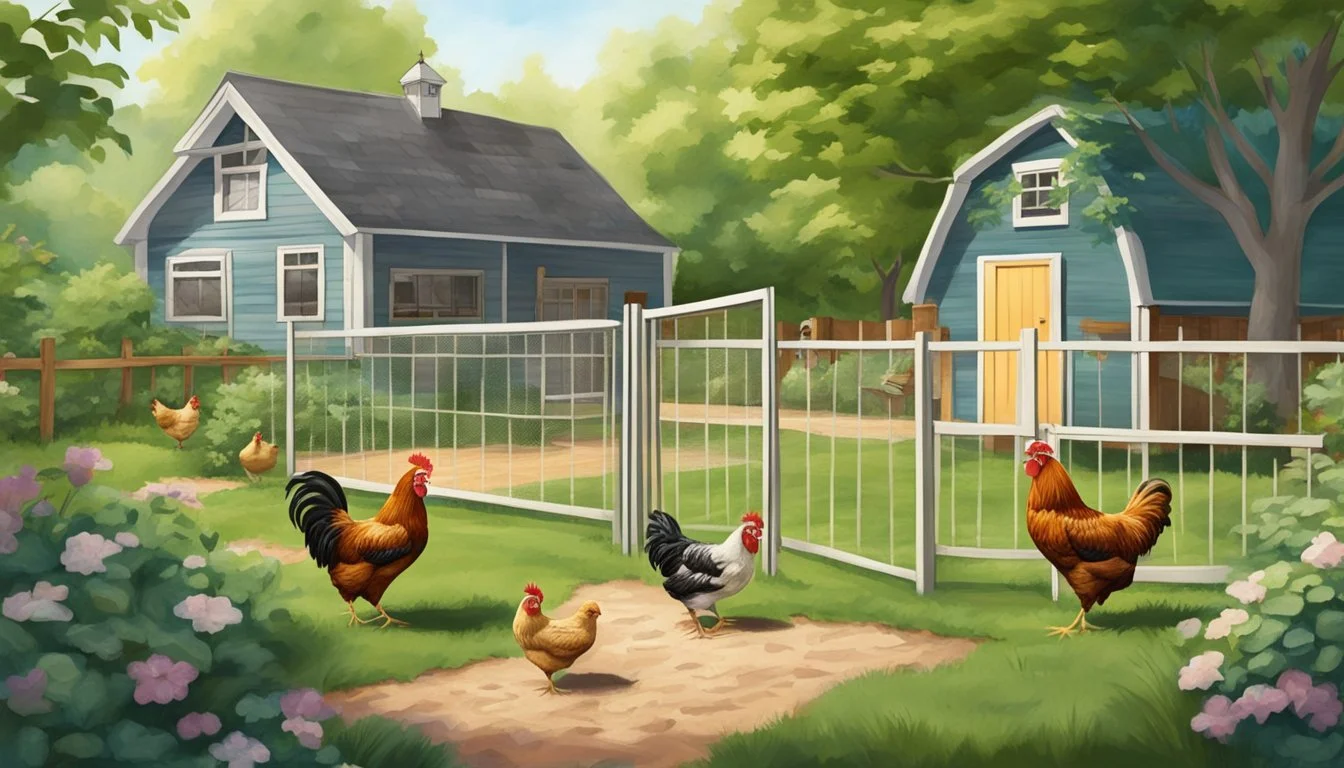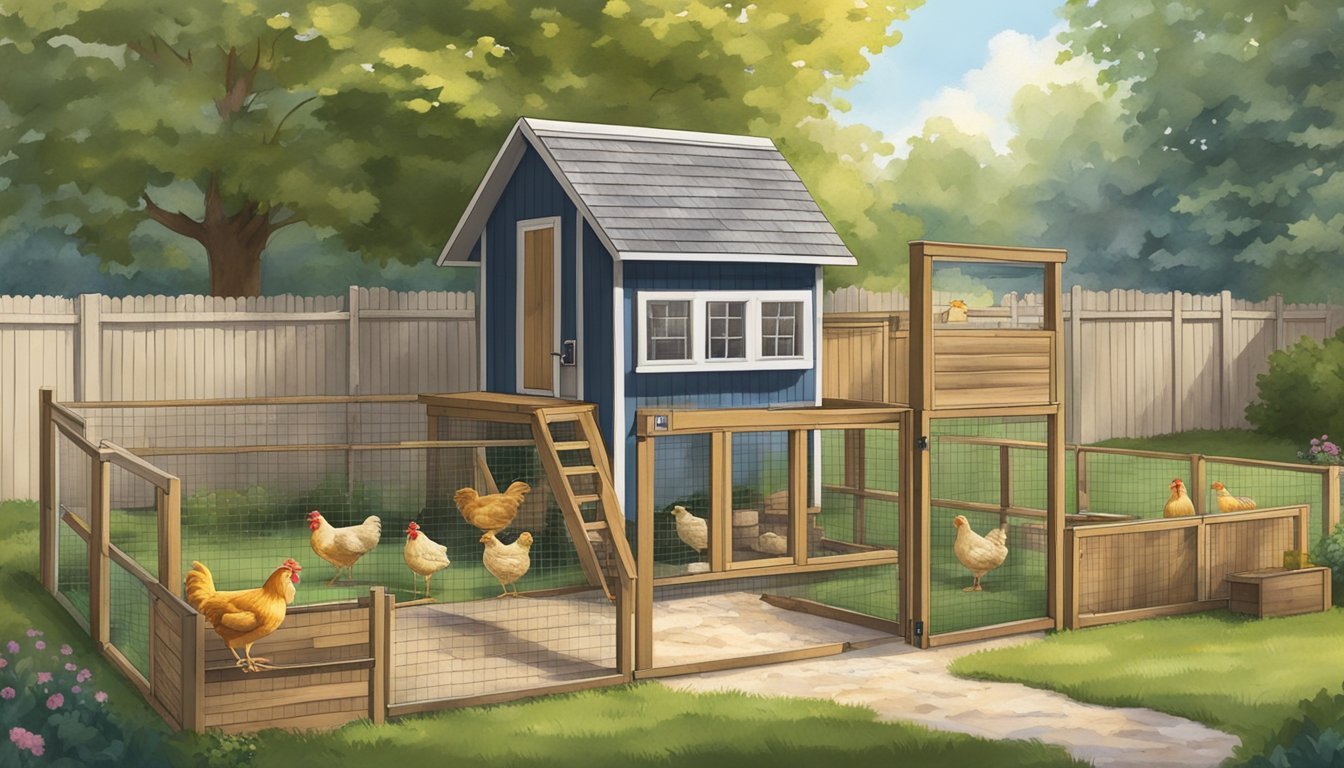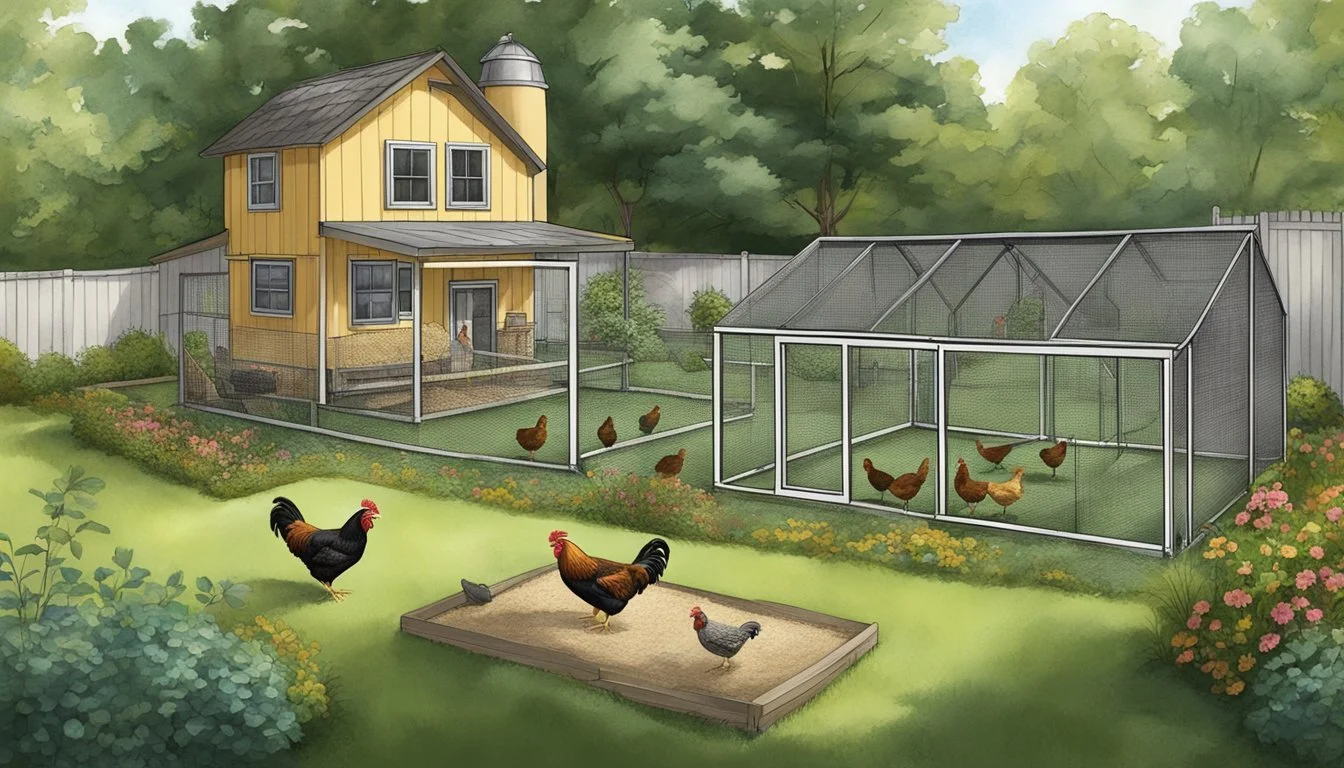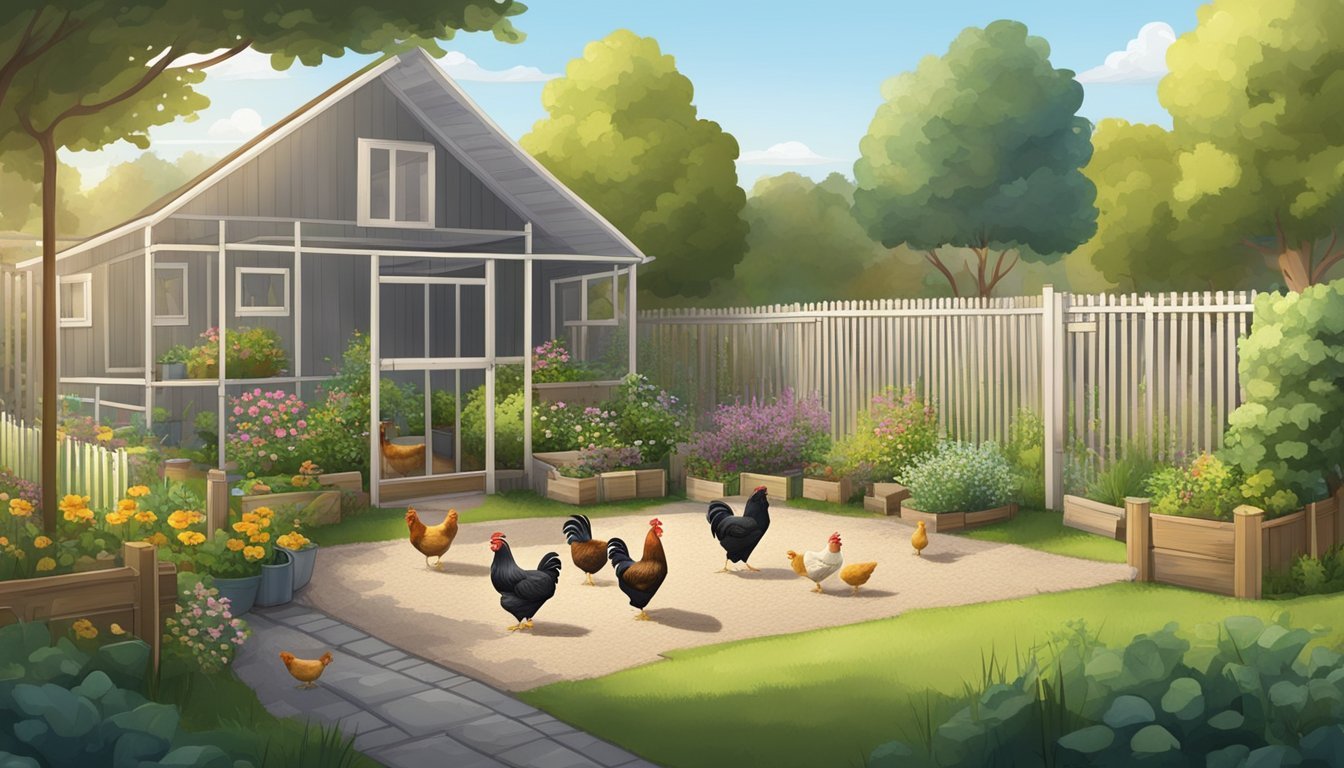Raising Backyard Chickens in Waukesha, WI
Essential Tips for Urban Poultry Farming
Raising backyard chickens has become a popular practice among residents of Waukesha, Wisconsin who are seeking a more sustainable lifestyle and the joy of fresh eggs. The local government has laid out specific guidelines that chicken owners must follow to maintain harmony within the community. As of mid-2020, recreational chicken farmers in the area are required to register their flocks as per zoning ordinances, highlighting the city’s commitment to managing urban agriculture responsibly.
In Waukesha County, chicken enthusiasts come together to share experiences, exchange tips, and provide support for one another in various forums, including social media groups. These platforms serve as valuable resources for both seasoned and novice poultry keepers, offering insights into best practices for chicken care, coop construction, and navigating local regulations. Connective community efforts like these demonstrate the region’s inclusive approach to backyard chicken raising, emphasizing the importance of education and mutual assistance among poultry hobbyists.
Understanding Local Chicken Ordinances in Waukesha
Residents in Waukesha embracing urban agriculture need to navigate local regulations. The Waukesha County and City ordinances dictate guidelines for keeping chickens, ensuring animal welfare and addressing community concerns.
Waukesha County Regulations
In Waukesha County, individuals interested in keeping chickens for recreational purposes must register their activity. Regulation compliance is key, with different rules spelled out in the Zoning Code or the Shoreland Ordinance depending on the property's specifics.
Registration: Mandatory for recreational chicken keepers.
Contact: Enforcement is guided by the Planning and Zoning Division.
City of Waukesha Chicken Ordinance
The City of Waukesha has passed a specific chicken ordinance—after substantial discussion by the Common Council and input from community members. Discussions on the ordinance looked to address concerns such as potential for rodent infestation, public nuisance, and manure management.
Amendments: Occasionally proposed to respond to public feedback.
Limitations: Restricts the number of chickens based on land size.
Prohibitions: Generally, roosters are not allowed due to noise considerations.
Licensing and Permits
The City of Waukesha's licensing and permitting process is designed as a measure to prevent issues and ensure that chicken keeping does not become a public nuisance within the county. Interested parties must secure a permit before keeping chickens, which often involves a fee. Regulations are enforced to mitigate concerns such as rats and other rodents.
Fee Structure: Can vary, important for prospective chicken keepers to verify.
Enforcement: By the city officials; non-compliance can result in penalties.
Resources: City Attorney Brian Running and other officials provide clarity on enforcement and compliance during meetings or consultations.
For exhaustive details, residents should contact the Planner of the Day at the County or City Attorney Brian Running for guidance specific to residential properties. This ensures adherence to the ordinances while promoting urban agriculture within the bounds of the law.
Setting Up Your Backyard for Chickens
Establishing a suitable environment for backyard chickens in Waukesha, WI involves careful planning to ensure that the space is functional, secure, and adheres to local ordinances. This section will guide you through key aspects such as choosing an appropriate chicken coop, designing an outdoor enclosure, fortifying against potential threats, and upholding cleanliness to maintain a healthy habitat for your flock.
Choosing the Right Chicken Coop
Selecting a chicken coop for your property requires assessing the number of chickens you plan to keep. Each chicken needs at least 3 square feet of space inside the coop to ensure they are comfortable. For a family's small flock, a coop measuring 4x6 feet will suffice. Ensure the coop has nesting boxes with soft bedding like straw where hens can lay their eggs peacefully. Every nesting box should be 12x12x12 inches in size to accommodate a hen comfortably.
Designing the Outdoor Enclosure
The outdoor enclosure or run should provide each chicken with at least 10 square feet of space. Essential components of the enclosure include sturdy roosts at least 2 feet off the ground with 8 inches of roosting space per bird. Rounded edges on roosts will help prevent foot injuries. The run should be covered with a wire mesh to allow chickens to forage and exercise safely while preventing escape.
Protection Against Predators and Rodents
A critical aspect of backyard chicken care is safeguarding your flock from predators and preventing rodent infestation. Secure the coop with heavy-gauge hardware cloth dug at least 12 inches into the ground around the perimeter. Installing rat bait boxes strategically can control rodent populations without putting chickens at risk. Regular inspections for potential entry points are vital and should be part of routine coop maintenance.
Maintaining Sanitation and Cleanliness
To maintain a clean and sanitary environment, regular cleaning of the coop and enclosure is essential. Remove droppings daily and change bedding in nesting boxes frequently to control odor and minimize the attraction of flies. The coop must have adequate ventilation to keep air circulating and prevent moisture buildup, which can contribute to respiratory illnesses in chickens.
Implementing these measures will support the health and well-being of your backyard chickens while ensuring harmony with neighbors and compliance with local ordinances in Waukesha, WI.
Chicken Care and Management
Raising backyard chickens in Waukesha, WI necessitates a firm understanding of care and management to ensure the health and productivity of the flock. This includes specific aspects such as nutrition, water accessibility, and egg handling procedures.
Daily Feeding and Nutrition
Chickens require a well-balanced diet to maintain their health and egg production. Starter feeds with 18-20% protein are essential for chicks from 0-8 weeks of age, transitioning to a 16-18% starter/grower feed until they are 14 weeks old. Laying hens benefit from a layer feed containing approximately 16% protein to support consistent egg production. The Waukesha County recreational chicken keeping codes emphasize the need for adequate feeding equipment to keep the food clean and dry.
Chicks (0-8 weeks): 18-20% protein starter feed
Growers (8-14 weeks): 16-18% starter/grower feed
Laying Hens (15+ weeks): 16% protein layer feed
Water Supply and Chicken Health
A consistent supply of clean, fresh water is critical for chicken health. Waterers must be checked daily to ensure they are free from contaminants and are functioning correctly, as chickens must have access to water at all times. Local ordinances may also dictate standards for coop cleanliness, which aids in preventing disease and maintaining a healthy flock.
Egg Collection and Management
Eggs should be collected daily to ensure freshness and minimize the risk of breakage or becoming dirty. It's important to have a routine for egg collection to maintain high-quality eggs. A proper egg management system also includes designated storage areas that are cool and clean, which helps in extending the shelf-life of the eggs. Compliance with local laws may dictate how eggs are handled, particularly if they are sold or distributed beyond personal use.
Community Relations and Legal Compliance
In Waukesha, WI, raising backyard chickens involves understanding local zoning rules, ensuring neighborly harmony, and contributing to the community's quality of life.
Navigating Neighbor Relations
Local ordinances in Waukesha mandate homeowner diligence to avoid disputes. Chicken owners must register their chickens as per zoning requirements and adhere to limitations, such as the restriction of the number of chickens based on property size. By proactively engaging with neighbors and seeking support for their avian passion, owners can often prevent conflict.
Handling Complaints and Violations
In the event of complaints or accusations of public nuisance, such as excessive noise or odors impacting neighboring properties, chicken owners should respond promptly and civilly. It is crucial to be compliant with local regulations to mitigate commercial impacts and respect ownership boundaries. Those facing potential violations may benefit from contacting the Planner of the Day for guidance.
Contributing Positively to the Community
Through attention to restrictions and positive neighbor interactions, owners can minimize disruptions and showcase the benefits of backyard chickens. Participation in public comment sessions or full council meetings is encouraged for those wishing to discuss existing or proposed ordinances. This ensures the chicken enthusiasts align with community standards and contribute to a cohesive neighborhood environment.
Advocacy and Raising Awareness
In efforts to shift local policies, community advocates like Lisa Salb have worked to highlight the benefits of urban chicken farming and engage locals in supportive dialogue. This has led to an increase in research and discussion among residents, pushing for changes in city ordinances to allow backyard chickens in spaces such as Waukesha, Wisconsin.
Promoting Urban Chicken Farming
Advocacy for urban chicken farming hinges on robust educational campaigns led by individuals and organizations. They aim to demonstrate the benefits of raising backyard chickens to city officials and fellow residents. Exhibits include how chickens contribute to sustainable living by providing fresh eggs and natural pest control. These advocates also compile research showing that responsible chicken raising does not pose significant risks to communities. The promotion of urban chicken farming also tackles the need for freedom to own chickens under reasonable regulations that ensure community welfare is maintained. In Waukesha, supporters have pushed for amendments to fowl-related ordinances, highlighting the value of small-scale poultry ownership.
Engaging with Local Chicken Farming Communities
Community engagement platforms are crucial to policy change, with residents actively participating in public comment sessions and education initiatives. Key strategies include:
Creating forums where residents can share experiences and best practices for chicken raising.
Facilitating meetings with local representatives in the Waukesha County to discuss potential ordinance changes.
Building support groups that can offer advice and assistance to new chicken owners, fostering a sense of community and shared purpose.
This hands-on approach reinforces the groundwork for passing inclusive ordinances. By mobilizing local support and ensuring ample education on the subject, advocates aim to persuade the full council of the value of backyard chicken ownership and the importance of crafting rational, yet accommodating, permits and regulations.







